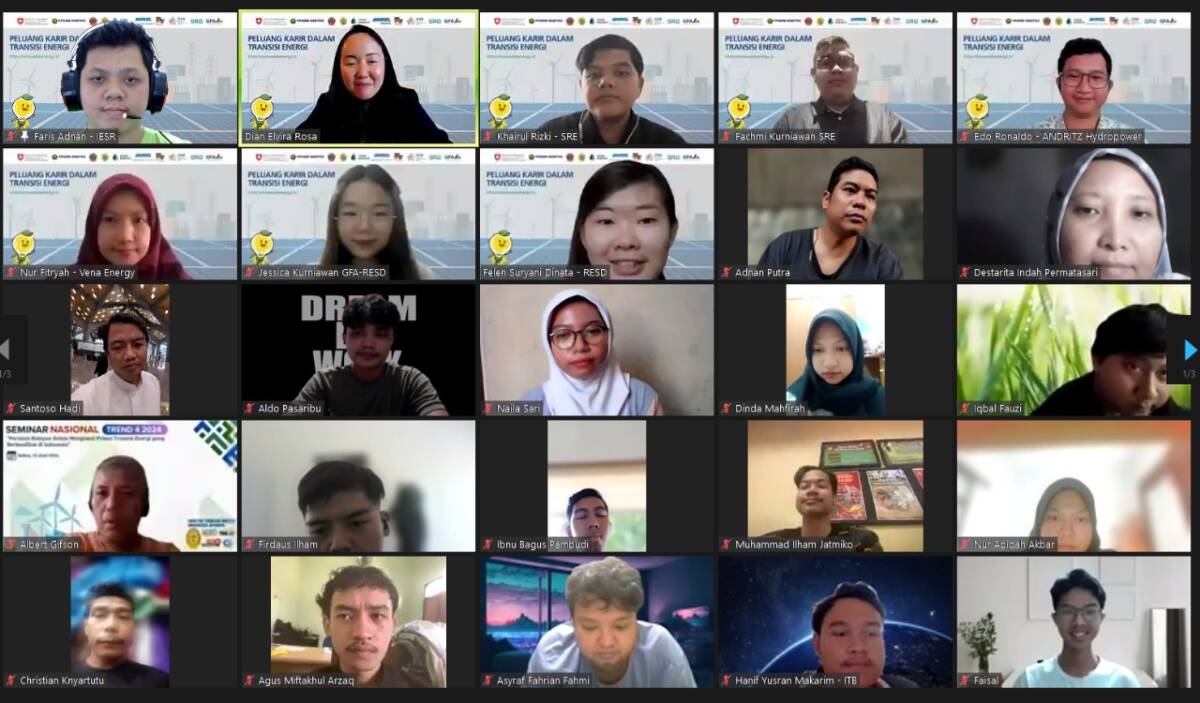Jakarta, June 24, 2024 – The energy transition towards using more environmentally friendly energy resources is a significant challenge faced by many countries worldwide, including Indonesia. Research is vital for understanding, planning, and implementing the necessary changes in this endeavor. This was revealed by Faris Adnan Padhilah, Research Coordinator of the Management Section for Energy Demand, Institute for Essential Services Reform (IESR), at an event entitled “Young Generation for Energy Transition: Career Opportunities and Building the Renewable Energy Sector”, organized by the Society of Renewable Energy (SRE), Center for Human Resource Development for Electricity, New Energy, Renewable Energy, and Energy Conservation (PPSDM KEBTKE), Renewable Energy Skills Development (RSED).
According to Faris, through research, Indonesia can find innovative solutions to energy challenges, improve efficiency, and design effective policies to drive an equitable energy transition. In addition, collaboration between the government, academia, industry and society remains critical to the energy transition’s success.
“Collaboration between various parties is crucial. For example, we at IESR in addition to working with the central government also form capacity building for local governments and communities to encourage an equitable energy transition,” Faris explained on Saturday (22/6/2024).
One example of IESR’s concrete work, said Faris, is the BOENDA program (integrated assistance for kitchen and household lighting) in Jambi Province. Initially, this program included electric stoves as one of the forms of assistance. Still, after further review, the procurement of electric stoves was postponed, and the focus was on using rooftop solar power plants. Based on IESR’s study, Jambi Province has 281.5 GW of solar energy potential.
“IESR’s research and advocacy play an important role in ensuring that Indonesia is ready for an equitable energy transition. With in-depth research and collaboration between the government, communities, and the private sector, Indonesia can open up opportunities for the creation of green jobs that support economic growth and environmental sustainability,” said Faris.
Citing an IESR study titled Deep Decarbonization, it shows there will be around 3.2 million new jobs related to green jobs. This covers various employment sectors, including renewable energy, energy efficiency, waste management, sustainable agriculture, and green buildings. For this reason, the preparation of human resources and financial resources plays a vital role because the development of technology moves so fast that it requires qualified human resources and sufficient financial support.

